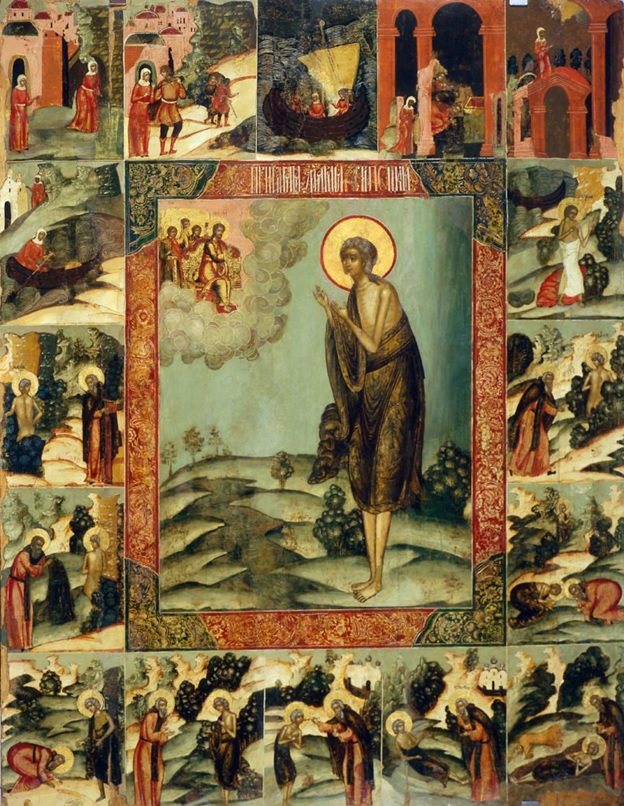An extreme story of sanctity (5th Sunday in Lent)
2 April 2023‘For the son of man did not come to be served but to serve’
On the 5th Sunday of Great Lent, our Church presents and honors the sacred memory of a holy woman, our blessed mother, Mary the Egyptian, who began from a life in the shadows and was made perfect in asceticism. Her life is an extreme story of sanctity, a tale of Adam’s nakedness, of physical and spiritual lack of passion, divestment of human properties, abandonment of personal ideas and will, recovery of the ancient health of the soul, a story of virginity of the body and of the spirit. It’s a tale of plunging into the infinite depths of the grace of God. Her memory is accentuated towards the end of Lent as a call for us to wake up and consider our situation carefully, because Saint Mary the Egyptian lived in the chaos of sin and discovered the meaning of true repentance and forgiveness. She lived for forty-seven long years in the wilderness of the Jordan. She discovered just how boundless God’s love is for us weak and sinful people. How numerous are the paths God builds in our everyday routine in order to bring each of us to the road of salvation. With what great humility, meekness and patience he prepares and awaits the repentance of each one of us.

Infinite love and mercy
What is it on our part that opens our way to the Lord, who came to be crucified for the sin of the world? Or what is it that saves us? Saint Mary the Egyptian teaches us that what is necessary for us is an awareness of our sinfulness, is despair over ourselves. This is what turns us: when the thirst for personal communication and love engulfs us and when, as someone experiencing pain and godly desire, we’re wrapped in the flames of God’s love and mercy.
We can’t hope in ourselves, but can have trust in God alone, who raises the dead, those ‘who have been slain by sin’. What saves us, in the end, is God’s infinite love, which seals the mystery of God’s existence and our own eternal existence.
No-one has ever fallen out of God’s love. Because even in our sinfulness, even at the lowest ebb of our decency, we still remain God’s children. Besides, who can say for certain that people are what they do, that they’re free to act as they wish, or that they enjoy what they do?
The temptation of self-justification
For the faithful, who are so deeply ensnared in the temptation of self-justification and self-reliance, Saint Mary is a model because she gives what she is: her being, naked, so that it may be re-clothed by the grace of God. She gives exactly what God knows and what he expects from us: the depths of the mystery of the heart, repentance, which saves us and sanctifies us.
Repentance is a change of mind, a new way of thinking, a dynamic transition ‘from the unnatural to the natural, and the return from the devil to God through asceticism and labors’. This definition makes it clear that repentance isn’t compliance with the Law, but a heart-rending encounter with Christ.
The saving step
‘Draw near to God and he will draw near to you’ (James 4, 8). If we take one step towards God, he takes ten towards us. Hell isn’t for sinners, but for the unrepentant. For those who don’t feel their unworthiness, who don’t understand the magnificence of forgiveness, who have no concept of the paradise of God’s love, who don’t live in the hope that faith brings.
The Church can say to each of us ‘Fear nothing and don’t be sad. Provided you repent, God will forgive you everything. In this world, there isn’t and can’t be any crime so great that God won’t forgive those who truly repent. Nor can we commit any sin so great that it will exhaust God’s measureless love’.






